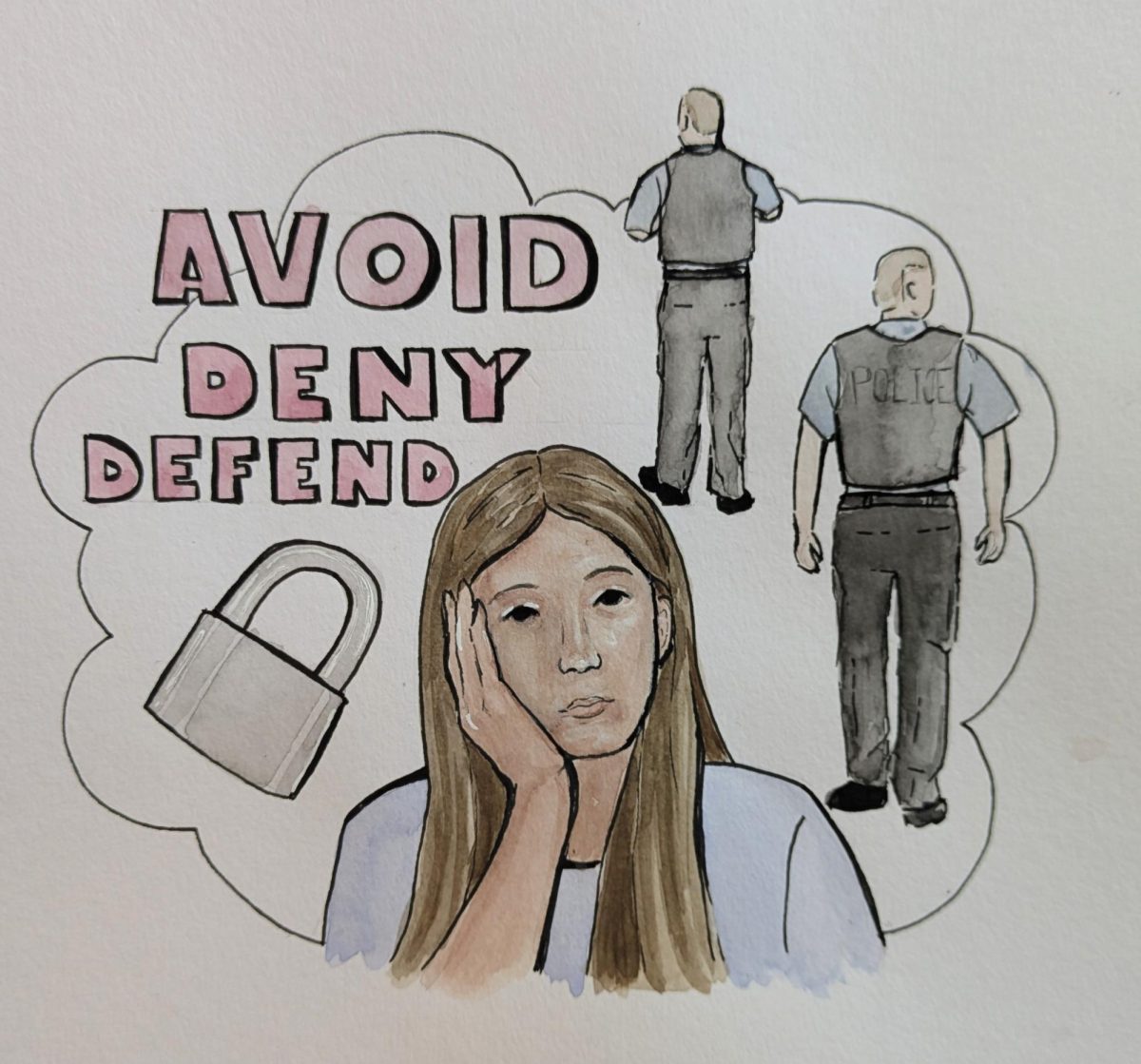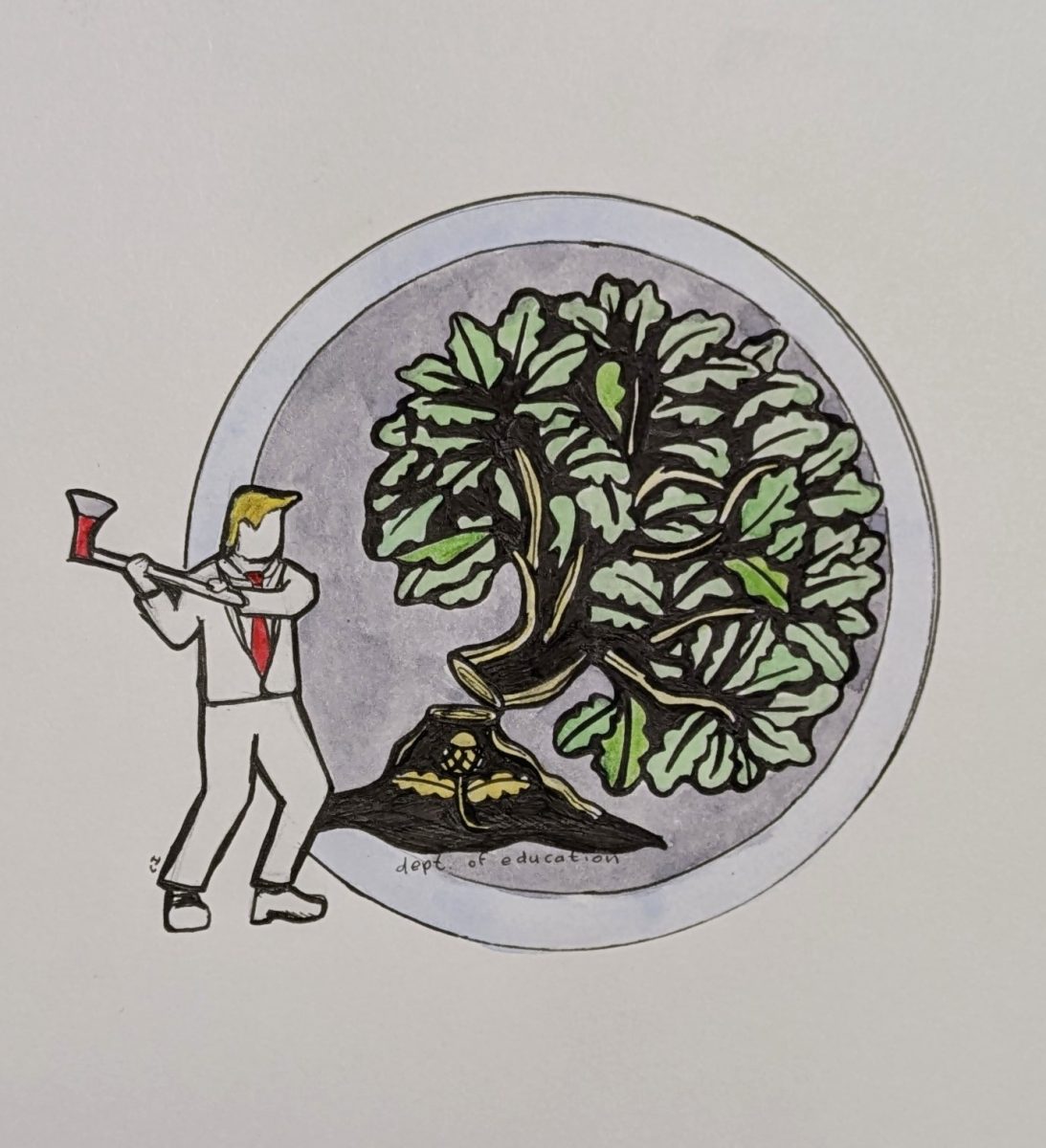This story previously ran in our September 2023 print issue.
In recent years, the climate change crisis has overtaken both our planet and our nation. Sea levels are rising, sweeping wildfires are arising, more tropical storms are brewing, and millions of lives are being upended. Many politicians, especially in the United States, have turned this issue into an ideological, partisan battleground. While widely recognized as a threat at both national and international levels, discord over the issue remains a roadblock to progress.
Defending their opposition to climate change control, many politicians claim it to be another tool to control citizens. Democratic presidential candidate Robert F. Kennedy has consistently denied climate change, citing it as “Bill Gates and the billionaire boys’ club in Davos … [trying] to impose totalitarian controls and to stratify our society, with very powerful and wealthy people at the top, and the vast majority of human beings with very little power and very little sovereignty over their own lives.”
Gates, in addition to dedicating billions of dollars to philanthropy, has continuously advocated for controlling climate change and combating its threats in multiple books and lectures.
Climate change laws have also faced staunch opposition from many Republicans. Former President Donald Trump, who previously dismissed climate change as a hoax, pulled the U.S. out of the Paris Climate Accords in late 2020 citing concerns about its terms hurting the U.S. economy. The agreement, designed to hold “the increase in the global average temperature to well below 2 degrees Celsius above pre-industrial levels” through various regulations, has had positive effects on the climate. However, Trump valued marginal financial gain today over stronger economic and environmental benefits in the long run. Morever, the top 10 most destructive weather events of 2021 cost the U.S. over $170 billion, around $70 billion more than the amount that the U.S. invested at a climate change prevention conference in 2009. Former Vice President and Republican presidential candidate Mike Pence recently stated that if elected, he plans to eliminate the Environmental Protection Agency, which has been committed to ensuring environmental safety for over 50 years.
Part of the difficulty in the battle over climate change takes root from the polarization of almost every issue in the last few years. Republicans and Democrats are farther apart than ever on the political spectrum in Washington, and seeing bipartisan support on any bill has become a rare occurrence. This hyper-politicization has become so ingrained in America that some have resorted to spreading absurdly false claims on any issue. For example, in 2021 Joe Biden promised to cut down U.S. carbon emissions by 50 percent by 2030, and several Republican lawmakers — including Rep. Lauren Boebert of Colorado and Gov. Greg Abbott of Texas — responded by claiming Biden was trying to severely limit Americans’ red meat consumption. Fox News then further spread this baseless statement – Biden never discussed red meat – inevitably resulting in further division as this claim made its way across the country.
Climate change, however, should not be a political issue under any circumstances. Unlike other controversial topics, it is based solely on decades worth of facts and research; there are no political, religious, or social ideologies. In 2021 alone, the U.S. saw 20 hurricanes and other tropical storms, a 250 percent increase from 1991. However, while weather disasters are the most imminent in our minds, they are not the only changes that should concern us. In the past 140 years, sea levels have risen 8-9 inches, with dramatic implications, as the recent floods in Libya have shown. These deadly disasters affect all people, Republicans and Democrats, Conservatives and Liberals; regardless of their ideologies, people of all kinds are harmed by climate change, as well as the refusal to do anything about it.
Some of those who are in power – and have been for decades – continue to perpetuate conspiracy theories that climate change is fake or oppose climate control measures. Studies from Pew Research show that baby boomers tend to oppose taking measures that address climate change more than any other generation. Exactly half of the Senate, and just over a quarter of the House of Representatives are over 65-years-old – part of the same demographic consistently against combating climate change.
While it is unfair to group all these people together, and many of these people are still actively fighting for climate change control, a significant portion are also stopping progress (for whatever reason) and refusing to compromise. Many of these people will likely not live to see the truly devastating effects of climate change; it is our generation and those after us who will bear the consequences of their inaction. It is time we replace these lawmakers defending baseless ideological values to the whole nation’s detriment with those who will actually make a difference. Those who will fight for us. Those who recognize this is an issue that affects all Americans regardless of party, and are willing to do whatever it takes to make it better.
Thankfully, this is not an unfamiliar road. Politicians in the past have put their differences aside to enact policies for the public’s benefit. For example, Senators Tina Smith (D-MN) and Todd Young (R-IN) recently introduced a bipartisan bill to combat climate change that both parties agree is a satisfactory solution. Financially, several companies are also taking steps to combat climate change, despite many short-term, profit-based motives trying to point them in the opposite direction. Oil company Occidental recently purchased climate change combating technology for over a billion dollars in order to produce their first carbon-neutral shipment of oil – the first of many to come. Likewise, Coca-Cola, similar to other major companies, has vowed to become fully carbon-neutral within the next few decades. While it may be more expensive for these businesses to go green, it is simply another kind of investment: an investment in our future.
If we wish to continue on this path however, it is not enough for the general public to rely on politicians and international conglomerates to lead the way. Everyone must realize that climate change is real, dangerous, and coming for us faster than we realize. This issue is unique in that there are not both winners or losers; we either win together by halting climate change, or lose the race for our planet’s preservation. The choice is ours.











